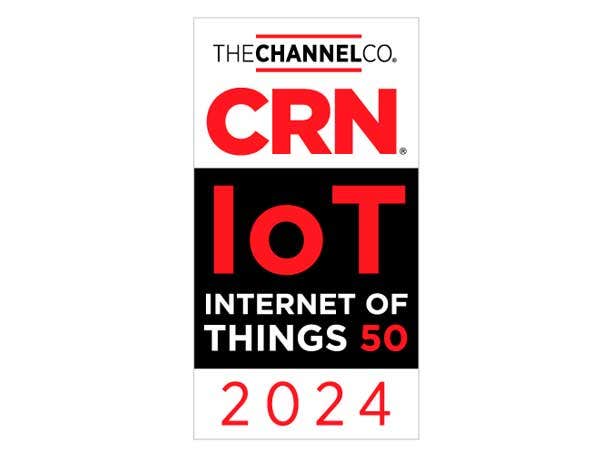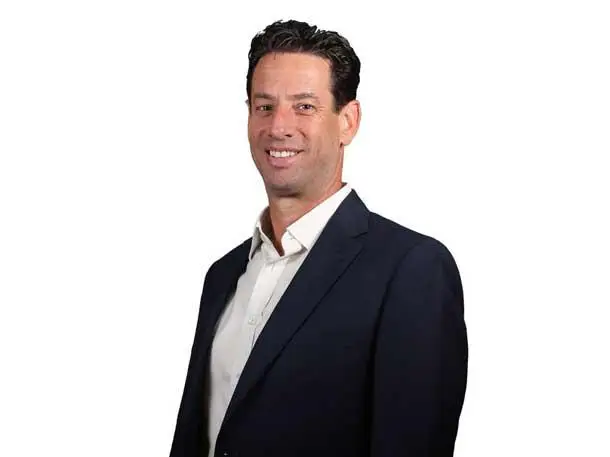The 10 Coolest IoT Security Companies: The 2024 Internet Of Things 50
As part of CRN’s 2024 Internet Of Things 50 list, here are the coolest and most noteworthy vendors who are innovating and making big moves within the IoT security space.

While businesses continue to expand spending on IoT projects, there is an inconvenient truth they must all face: the security risks of connecting many things.
The good news is that a significant number of businesses know this, with half of IT leaders surveyed by security vendor Viakoo saying they “believe IoT is the weakest part of their security efforts.”
The survey, released earlier this year, found that 95 percent of IT leaders have an IoT security plan in place for their business but a little over half feel confident about their plans.
Half of the surveyed companies said they have experienced an IoT-related cyber attack in the last 12 months while 55 percent believe those incidents “could have been prevented with better security measures,” according to Viakoo.
All these responses point to the importance of solution providers finding the right vendors to work with to ensure their customers’ IoT systems are properly protected.
For the 2024 Internet of Things 50, CRN picked the coolest and most noteworthy vendors who are innovating and making big moves within the IoT security space. What follows are descriptions of each company, which range from Armis and Asimily to Viakoo and Xage Security.

Armis
Yevgeny Dibrov
Co-Founder, CEO
Armis is fresh off the purchase of CTCI in a move that should boost AI-powered pre-attack threat hunting capabilities for this asset management and IoT security-focused vendor. Even before the acquisition, San Francisco-based Armis turbocharged its Centrix asset intelligence platform with automated vulnerability prioritization ticketing and improved monitoring and management features for its connected medical device version.

Asimily
Shankar Somasundaram
Founder, CEO
Asimily launched a new partner program toward the end of the year to bring its IoT and Internet of Medical Things risk management platform to resellers, MSPs and other partner types. The Sunnyvale, Calif.-based company says its offerings bring users fast forensics, centralized packet capture, risk modeling and vulnerability reduction for industries ranging from life sciences to higher education.

Claroty
Yaniv Vardi
CEO
Claroty continues to turn heads with product innovations including a new advanced anomaly threat detection module aimed at health-care environments and a $100 million strategic growth financing round in March that could keep it ahead of the competition. The New York-based company also recently rolled out new vulnerability and risk management capabilities for cyber-physical systems with a granular, flexible scoring framework.

NetRise
Thomas Pace
Co-Founder, CEO
This startup offers a platform that aims to identify and manage risk in connected device firmware and software, including a risk score based on analysis of multiple artifact types. Austin, Texas-based NetRise, founded in 2020, recently released an offering in its platform to identify and validate compromised and vulnerable third-party and proprietary software assets using semantic search powered by AI.

Nozomi Networks
Edgard Capdevielle
President, CEO
A $100 million Series E round of funding announced in March makes Nozomi a formidable competitor in OT/IoT security, with plans to scale product development and go to market. But even before that announcement, the San Francisco-based vendor was pushing boundaries in OT/IoT, including the recent announcement of Guardian Air wireless spectrum sensors purpose-built for such environments—monitoring Bluetooth, Wi-Fi and other frequencies and available through partners.

Palo Alto Networks
Nikesh Arora
Chairman, CEO
Integrated IoT/OT device visibility and Device-ID-based policy management, quicker time to asset visibility and more support across private 5G and 4G cellular networks are just some of the ways Palo Alto Networks continues to boost IoT security capabilities across its portfolio. The Santa Clara, Calif.-based company preaches zero trust with least privilege access plus continuous trust verification and security inspection as part of its Enterprise IoT Security offering.

Phosphorus Cybersecurity
Chris Rouland
Founder, CEO
Phosphorus entered 2024 with a war chest of $27 million raised in a Series A2 round of funding to keep making advancements in its hardwareless, agentless IoT security management offerings. The Nashville, Tenn.-based company automates some of the biggest IoT device vulnerability remediations and allows for threat and drift monitoring.

TXOne Networks
Terence Liu
CEO
TXOne Networks positions its OT-native products as capable of protecting assets through the entire life cycle and works with systems integrators, distributors and other partners to get the job done. The Taiwan-based company recently introduced a new Safe Port security checkpoint for USB sticks and other removable media to reduce OT malware risk, plus the second generation of its Edge engine, featuring automatic rule generation for complex environments.

Viakoo
Bud Broomhead
Founder, CEO
Viakoo has carved out a specialized lane in IoT security with an application-based discovery method to fi nd devices on network traffic, promising to shrink attack surfaces and speed up cybersecurity and automation. The Mountain View, Calif.-based company’s platform offers automated firmware patching, password policy enforcement, device repatriation and continuous compliance tracking as part of its goal of making users more secure. Viakoo has stressed partnerships as part of its go-to-market, with a program aimed at bringing its IoT security platform to resellers, MSSPs and other business models.

Xage Security
Geoffrey Mattson
CEO
Xage offers a way to secure and manage OT, IT and cloud operations—and a $20 million injection of capital means it should have more advancements rolling out in the future. The Palo Alto, Calif.-based company offers zero trust identity and access management for systems and data, with legacy asset life extension, advanced automation and OT-to-IT-to-cloud integration as some of its selling points.